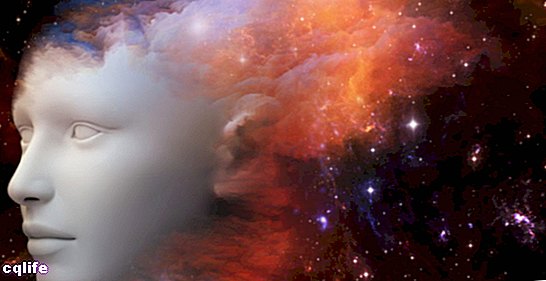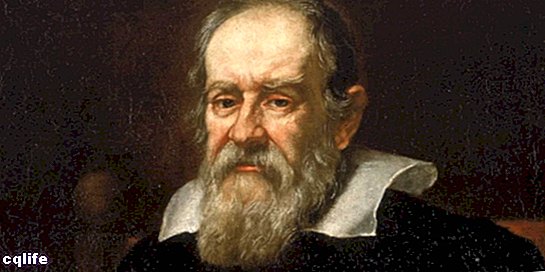- What is epistemology?
- Epistemological currents or doctrines
- Gnoseology and methodology
- History of epistemology
We explain what epistemology is and what are the epistemological currents. Also, its history and what is methodology.

What is epistemology?
Epistemology is the branch of philosophy who studies the theory of knowledge, using both the object and the subject that will access knowledge, as well as the limits of knowledge itself. The term comes from the Greek word ἐπιστήμη, which means knowledge.
Epistemology is sometimes confused with methodology, philosophy science and more recently with gnoseology, since all these sciences have in common that they study the process of construction of knowledge. However, epistemology has differences that make it unique, being an indispensable tool for the analysis of science and its forms of development in general.
The function of epistemology is to crystallize, that is, to clarify what are the circumstances in which it can be known and what are its limits, that is to say, it determines the scope and validity of the knowledge. To do this, it uses as a means of determining the validity or invalidity of knowledge the arguments. They can be demonstrative, intuitive, using authority resources, among others.
The word epistemology is composed of «episteme», a term that derives from the Greek and refers to knowledge or knowledge. science. Formerly, classical thinkers used the term "episteme" to differentiate it from "tekne", the latter referring to the notion of technique, to instrumental knowledge. It was also distinguished from the "doxa" or general knowledge and on many occasions associated with the common people.
On the other hand, the term epistemology has the suffix «logos«, Which refers to the study of a topic or thing. In this way we can conclude that epistemology is the study of knowledge. We will delve into this question below.
Epistemology as a science aims to study the objective, historical and social circumstances of the production of different types of knowledge that are considered scientific, what are the criteria used to consider something as scientific, and it works with concepts such as truth, justification, hypothesis, corroboration, etc. In short, it is the study of how and under what conditions scientific knowledge is produced. It is considered one of the branches of philosophy.
Epistemological currents or doctrines

There are various schools or currents that deal with the subject of knowledge. Some of them are:
- Criticism. Developed by Kant, who states that knowledge can be achieved, but this requires exhaustive analysis.
- Dogmatism. Instead, it asserts that knowledge can be acquired since it is the reality herself.
- Skepticism. On the other hand, it is a totally antagonistic current, which denies the possibility of knowing the truth due to factors external to the subject of knowledge that do not allow him to access reality.
Other currents focus their attention on the way to access knowledge:
- Empiricism. Which states that the only way to access knowledge is through experience.
- Rationalism. Which, on the other hand, exposes that the only means of achieving true knowledge is through the use of reason and the logic.
Gnoseology and methodology
This distinction is important, since it is at this point that some current debates turn.
Epistemology is the study of knowledge in general (for example, mathematical knowledge, or some non-scientific knowledge), and many authors are striving to erase the distinctions between this science and epistemology, seeking a unification of them. For example, the word epistemology is translated into English as "gnoseology«, But in Spanish-speaking countries this distinction is maintained.
With regard to the philosophy of science, this is considered as broader than epistemology since they tend to delve into deeper questions or in certain cases more metaphysical, such as if we know through the senses, etc. Epistemology starts from a base already stipulated and does not seek to inquire about these questions.
The methodology strictly deals with the processes necessary to arrive at a certain knowledge, while it does not seek to investigate the conditions that carried it out, or the conditions of legitimation. It can be considered as one of the branches most associated with the technique.
History of epistemology

This branch of philosophy has its origins in Ancient Greece. At this time knowledge could be classified according to the way in which it had been achieved in doxa or episteme. The former refer to knowledge that has not been subjected to reflections, but is acquired in an ordinary way. On the contrary, epistemic knowledge was reached through rigorous reflection.
However, the concept of epistemology as we know it was begun to treat during the Renaissance. Some of the most prominent authors in this area were Descartes, Galileo Galilei, Kant, Newton, among others. This resurgence of epistemology was due to the emergence of the scientific knowledge and the need to validate said knowledge. To do this, it analyzes the methods, procedures and fundamentals that are used in the field of science.
Although speaking of epistemology before the 19th century may at some point be anachronistic, we find some authors who have had a notable influence on it. discipline. Such is the case of René Descartes with the Discourse on Method, or John Locke and Immanuel Kant themselves. Philosophers of this stature have been able to incorporate within their great theoretical framework notions regarding how scientific knowledge is produced, although epistemology as such did not yet exist.
Undoubtedly the epistemological school that had the greatest influence on a theoretical level and that revolutionized the discipline, despite the forceful criticism that it would receive from one of its disciples, were the logical neopositivists. Grouped in the famous Vienna Circle, a group of intellectuals who studied the logical forms of thought and of the construction of scientific knowledge, they saw Bertrand Russell and Ludwig Wittgenstein as their greatest inspirers. It was the first great school of epistemology of the twentieth century, taking charge of the study of the logical forms of sentences and establishing criteria based on logic.
It will be Karl Popper who will discuss the bases on which the epistemology of the logical neopositivists was raised, when criticizing the induction criterion, understood as the process by which a single statement is reached through many verifications to a more general knowledge. . Popper postulates that this is not only impossible, but that it has serious consequences, and he will replace it with the logical-deductive method, understanding that no theory is verified, if not that it is only corroborated until new knowledge calls it into question.
